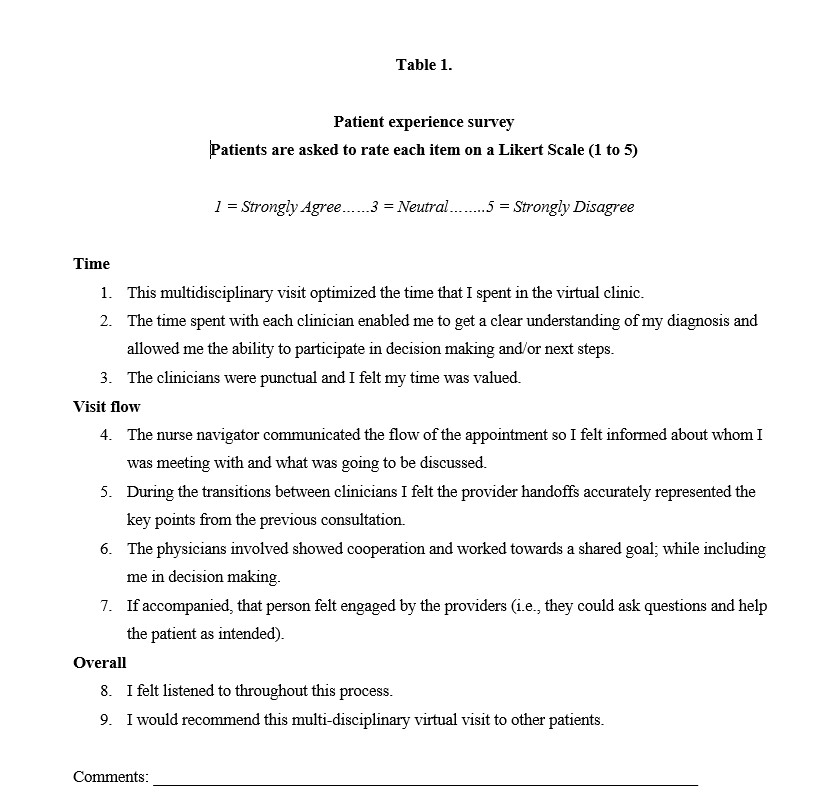Establishment and evaluation of a multidisciplinary virtual prostate cancer clinic
Ryan Dorin, MD, Tara McLaughlin, PhD, Ashley Bodamer, MPA, Suzanne Carrier, APRN, Ilene Staff, PhD.
Hartford Hospital, Hartford, CT, USA.
BACKGROUND: In order to facilitate patient safety in the era of COVID-19, Hartford Healthcare (HHC) piloted a nurse navigator-guided multidisciplinary virtual visit cancer clinic (MDVV). We evaluated the first year of the MDVV in terms of patient retention, quality metrics, and feedback from patients and providers. METHODS: Fifty-three patients with newly diagnosed or progressive prostate cancer were enrolled in the MDVV from August 2020 - August 2021. Patients had virtual consultations with a multidisciplinary team consisting of a urological oncologist, a radiation oncologist and a medical oncologist, and were guided through the visit by a nurse navigator. The goal was to help patients understand their diagnosis and treatment options and prepare them to take the next steps towards their treatment goals. Immediately after the consultation, the nurse navigator administered a 7 item satisfaction survey (Table 1). Providers were also asked to complete an anonymous survey focused on collaborative care, communication and efficiency of the program. We reviewed medical records to determine the proportion of patients who stayed at HHC for their prostate cancer treatment for the MDVV cohort vs. patients who completed traditional prostate cancer consults from October to December 2019. We also compared the cohorts on rates of multi- specialty consultations and adherence to NCCN imaging guidelines. RESULTS: A total of 51 of the 53 MDVV patients (96%) were treated at HHC; in the non-MDVV cohort 44 patients (88%) were treated at HHC (p=.15). The median score for patient satisfaction on all 7 domains was 1 (strongly agree). Provider satisfaction was rated as high by all participating providers. While 100% of the MDVV cohort received multidisciplinary consultation before treatment, only 14/50 traditional cohort patients (28%) received the same (p<.001). 100% of MDVV patients underwent imaging according to NCCN guidelines, compared with 33/50 (66%) of traditional patients (p<.001). CONCLUSIONS: The MDVV approach seems to be an effective means of offering safe, in-home consultation to patients newly diagnosed with prostate cancer, leading to high satisfaction among patients and providers. This format also improves access to multidisciplinary consultation and, in this cohort, increased adherence to imaging guidelines. 
Back to 2022 Abstracts


